We’re always cautiously optimistic when it comes to diversity in fashion. Sure, we’ve been let down a time or two. But like any worthwhile relationship, we hang in hoping that, at some point, the good outweighs the bad. Sadly, we’re going through a rough patch right now as evidenced by New York Fashion Week Fall 2021.
Obviously, the pandemic had a direct impact. Fewer designers participated and actual runway shows were few and far between. Although, we faced similar challenges during the Spring 2021 season and New York delivered its most diverse season ever. So what happened?
RACE
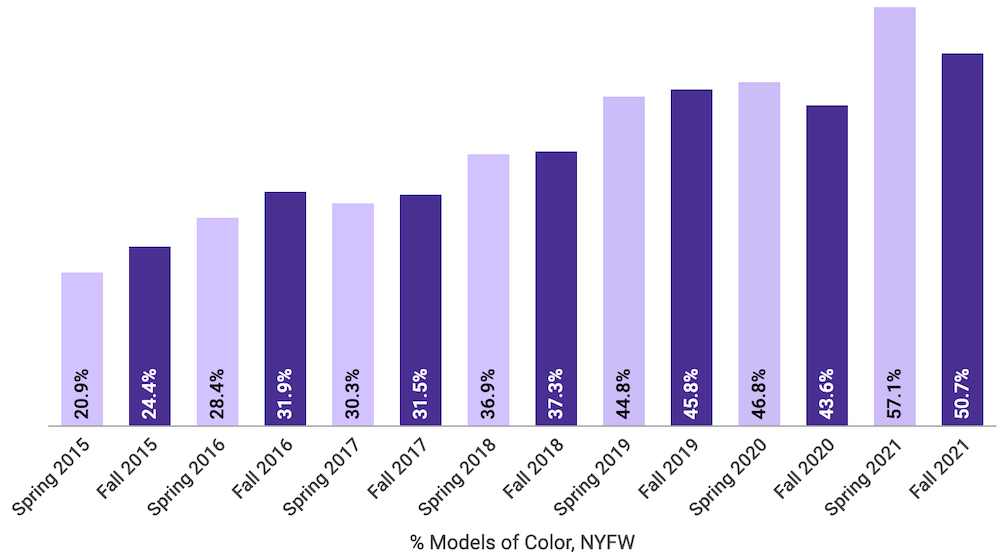
We reviewed 229 model appearances across 41 presentations compared to 287 model appearances across 48 presentations last season. The shrinking pool may account for some of the downturn for Fall 2021. This season boasted 50.7 percent models of color. While that may seem impressive, it’s down from 57.1 percent for Spring 2021. The constraints of showing during a pandemic could be partly to blame. But we have to wonder if the quest for social justice is no longer front of mind.
Even with the drop, Fall 2021 is officially the second most diverse season of New York Fashion Week since we started keeping track during the Spring 2015 season.
TOP MODELS
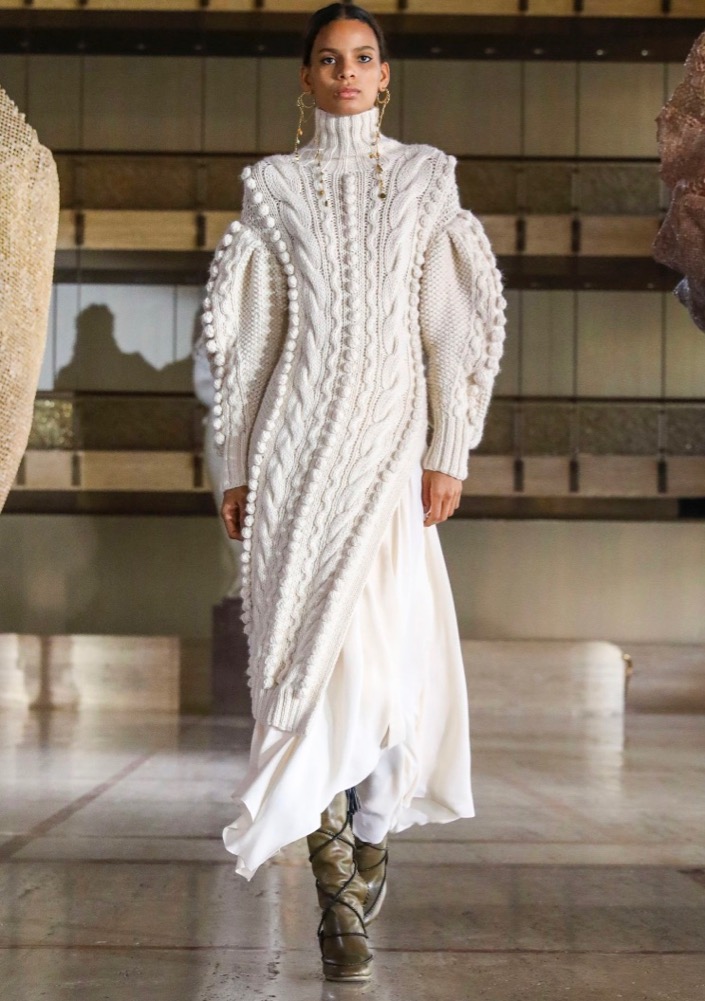
Annibelis Baez once again came out on top. The top model of Spring 2021 once again appeared in four shows. The Afro-Dominican beauty took part in Ulla Johnson, Jason Wu, Jonathan Simkhai and Prabal Gurung.
American model Effie Steinberg was close behind with three appearances. Namely Jason Wu, Gabriela Hearst and Proenza Schouler. While many models tied for third with two shows apiece, it’s important to highlight the fact that Dara Allen is among them. The transgender model represented Jason Wu and Prabal Gurung.
PLUS-SIZE
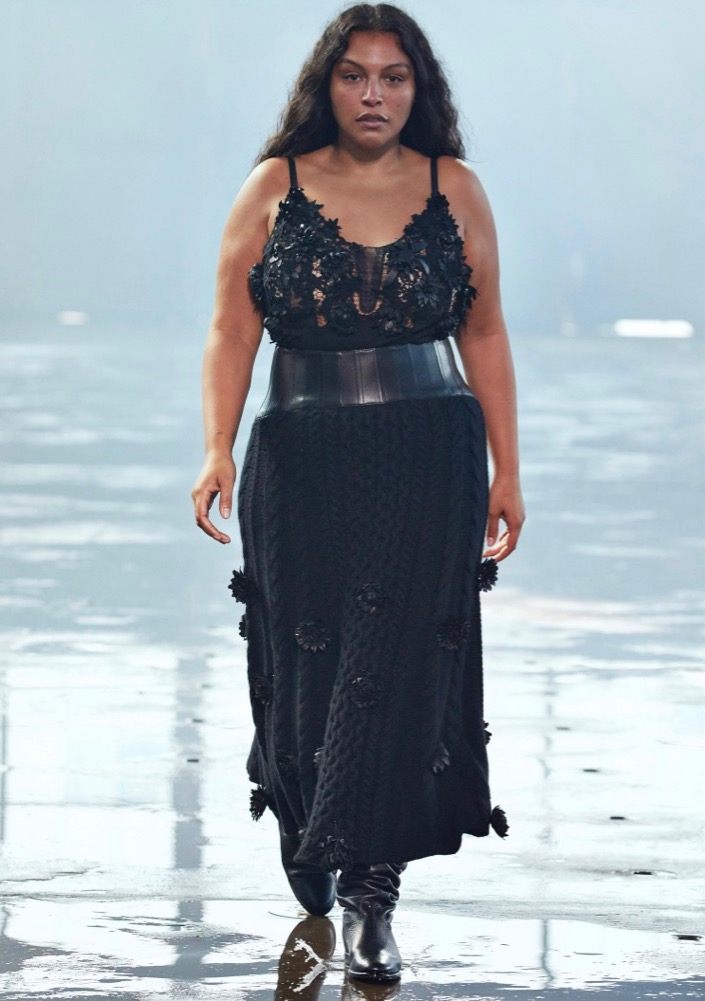
Size representation dropped this season, from 12 plus-size model appearances in Spring 2021 to just six for Fall 2021. What makes it all the more depressing is the fact that Spring 2021’s total was already a dramatic dip compared to 27 for Fall 2020.
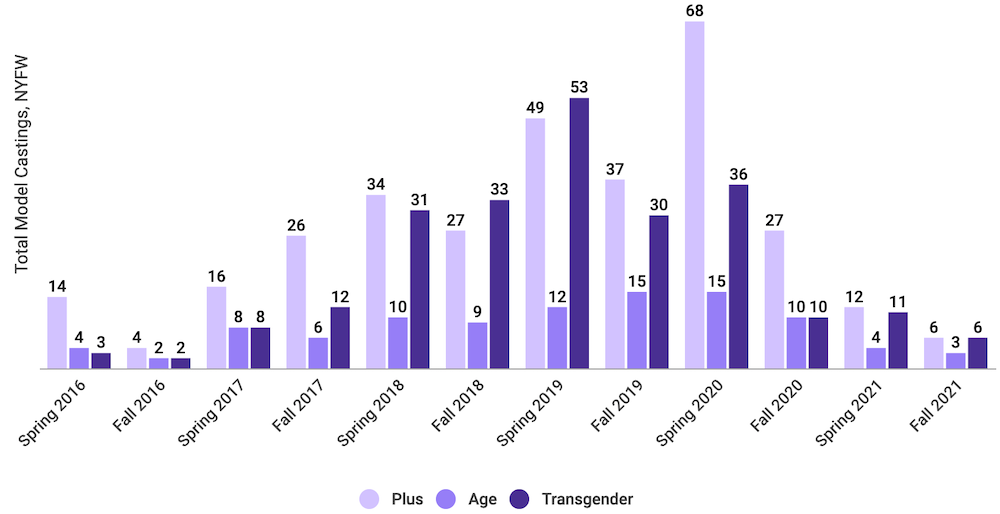
The six appearances came courtesy of five designers: Gabriela Hearst, Jason Wu, Collina Strada, Tanya Taylor and Christian Cowan. On the bright side, all but one of the plus-size castings went to models of color. But age and gender representation were not present.
TRANSGENDER/NON-BINARY
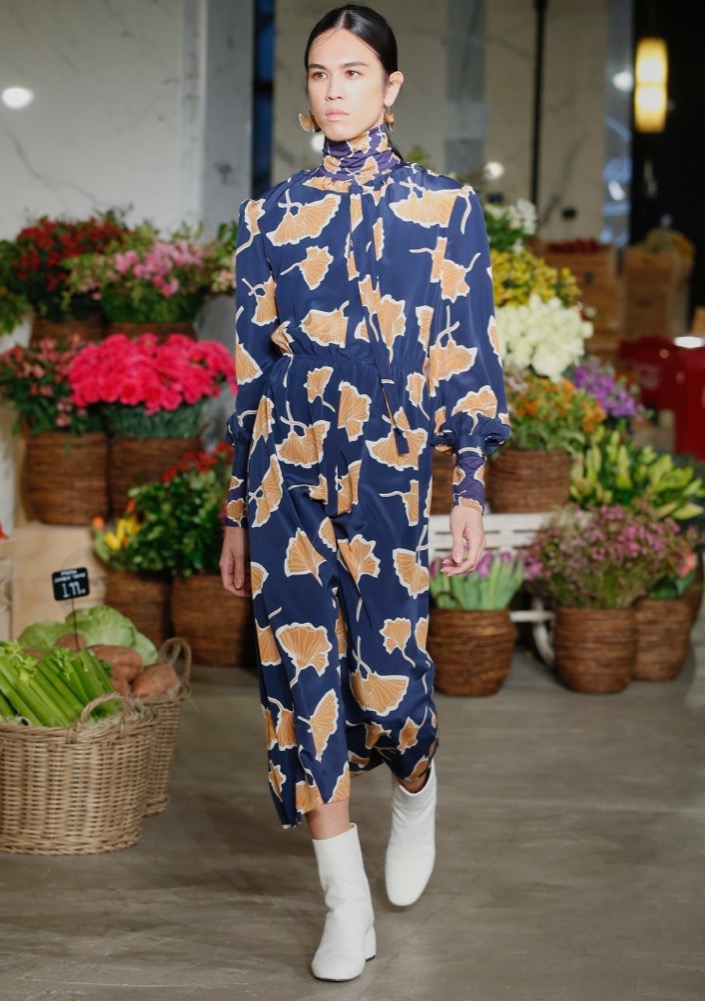
Transgender and non-binary models saw a five-point drop in representation going from 11 in Spring 2021 to six for Fall 2021. Ariel Nicholson walked for Gabriela Hearst. As previously mentioned, Dara Allen was tapped by Jason Wu and Prabal Gurung. Christian Cowan picked non-binary models Parker Kit Hill and Richie Shazam. And Aaron Philip once again represented Collina Strada.
Despite the overall dip, it’s an encouraging sign that five out of the six appearances went to models of color. It’s also great to see a disabled model (Philip) in the Fall 2021 lineup.
AGE
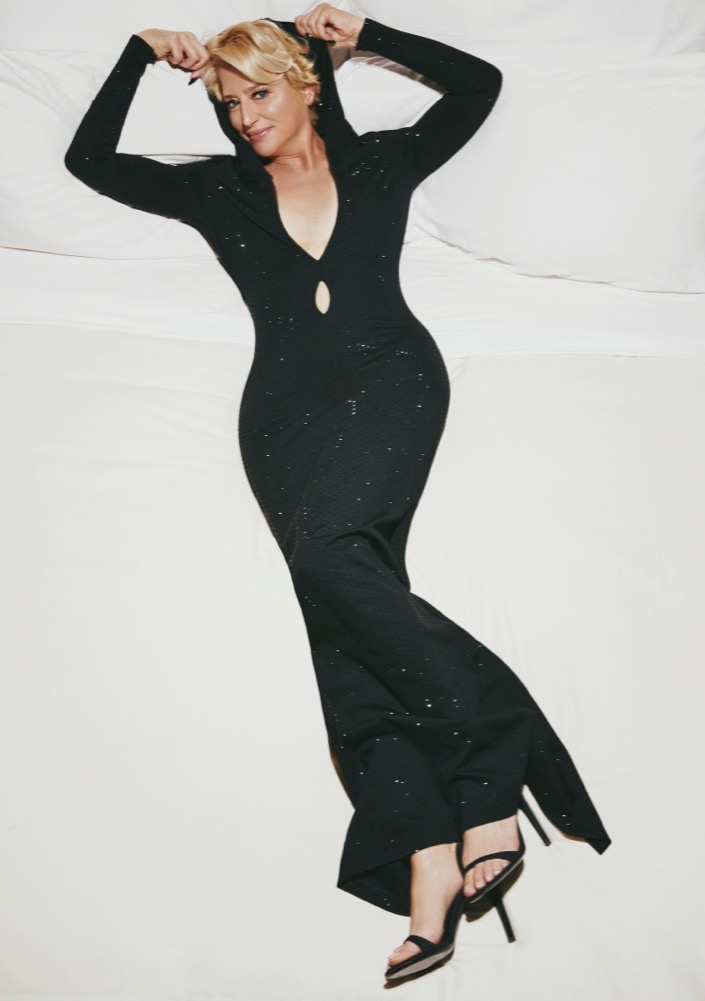
Models over 50 saw the smallest decline from Spring 2021. Seeing as how last season’s count was only four, it’s not exactly good news. Especially if you consider the fact that Fall 2020 saw 10 over-50 models and both Spring 2020 and Fall 2019 rang in at 15.
As if that weren’t enough, all three of this season’s hires were white. Collina Strada brought back Kathleen Engman. Christian Cowan enlisted former The Real Housewives of New York City cast member Dorinda Medley. And Amy Fine Collins modeled for Batsheva.
MOST AND LEAST DIVERSE SHOWS
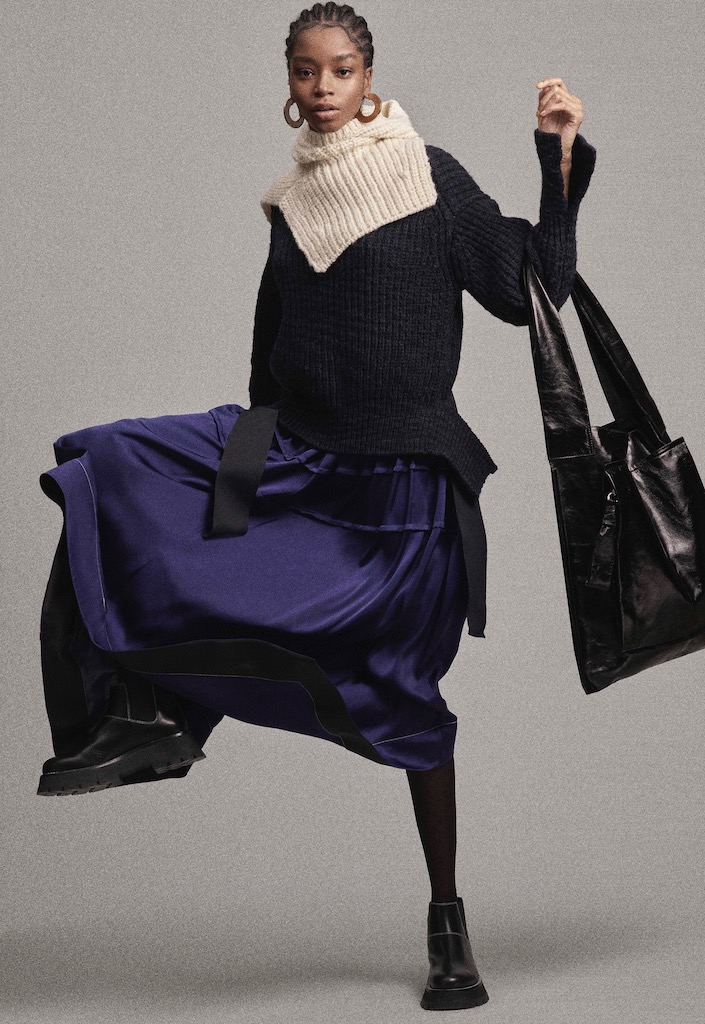
Four brands reached the 100 percent diverse mark for Fall 2021. But they accomplished this feat with smaller casts. Adam Lippes hired one model of color to model the entire collection solo as did 3.1 Phillip Lim. Elizabeth Kennedy booked two models and both were models of color. Kim Shui enlisted four models, all of them models of color.
Other top performers? Anna Sui (80 percent or four out of five), Prabal Gurung (75 percent or three out of four) and Sally LaPointe (75 percent or three out of four).
On the other end of the diversity spectrum, we saw a few familiar names. Once again Claudia Li and Katie Gallagher made the least diverse list with 0 percent models of color or zero out of two and 0 percent or zero out of one, respectively. Bevza also returned, but increased its tally from 0 percent in Spring 2021 to 18 percent models of color or 2 out of 11 for Fall 2021.
Rounding out the not-so-prestigious list are Tadashi Shoji (0 percent or zero out of two) and Vivienne Hu (0 percent or zero out of one).
While we’re disappointed that diversity took a nosedive for Fall 2021, it wasn’t totally unexpected. We even expressed our concerns that the increase was only temporary in last season’s report. Frankly, we kind of expected to see one more season of gains before the bottom fell out. But we’re hoping that drawing attention to the current state of diversity in the industry will inspire, nay compel, designers to do everything they can to send the numbers back up in the right direction.
Additional reporting by Mark E.
Only women and non-binary models are included in this data. Models of color are categorized as those who are nonwhite or of mixed backgrounds.




